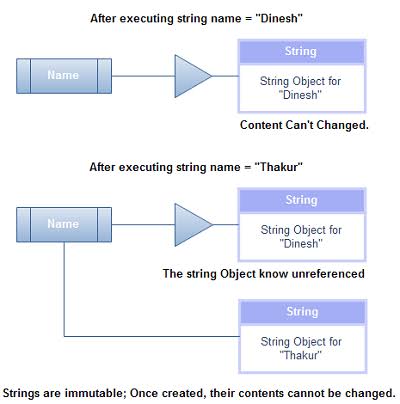Why Are Strings Immutable in Java? Enhancing Code Reliability
Why Are Strings Immutable in Java? Enhancing Code Reliability
Blog Article
What Is Immutable Strings and Just How It Functions
In the world of programs, comprehending the idea of immutable strings is critical for producing robust and safe and secure applications. Unalterable strings refer to strings that can not be altered after they are developed, ensuring information stability and predictability within the code.
The Essentials of Unalterable Strings
Immutable strings, as a basic concept in shows, are personality series that can not be altered once they are developed. This indicates that when a string is assigned a value, that worth can not be modified. In languages like Python and Java, strings are immutable objects, causing various ramifications in terms of memory monitoring and data integrity.
One of the crucial advantages of immutable strings is that they supply a sense of safety and security in information control. Given that the content of an immutable string can not be customized, it ensures that the original information continues to be intact, reducing the risk of unexpected modifications during program implementation (Why are strings immutable in Java?). This residential or commercial property additionally streamlines debugging processes, as designers can trust that once a string is specified, its value will certainly not be accidentally changed
When a new string is created based on an existing one, instead than changing the initial string, the new value is kept separately. On the whole, comprehending the essentials of immutable strings is vital for mastering programming ideas and maximizing code performance.
Benefits of Unalterable Strings
Building upon the protection and performance benefits of unalterable strings, their advantages reach enhancing code reliability and streamlining simultaneous programming tasks. By being immutable, strings can not be modified after creation, which gets rid of the risk of unintentional adjustments in the information they save. This inherent immutability ensures that as soon as a string is created, its worth continues to be constant throughout the program's implementation, minimizing the opportunities of pests caused by unforeseen modifications.
Furthermore, unalterable strings add to code reliability by making it simpler to reason regarding the state of a program. Considering that strings can not be changed, programmers can trust that a string will always hold the same worth, streamlining debugging and upkeep initiatives. This predictability brings about a lot more steady and reliable codebases.

Application in Programs Languages
Within different programming languages, the unification of immutable strings is a basic aspect that affects exactly how information is taken care of and manipulated within code frameworks. The application of immutable strings varies across different visit our website shows languages, with each language using its own systems to sustain this principle.

On the other hand, languages like C and C++ do not have built-in assistance for immutable strings. Designers in these languages need to manually apply immutability by implementing rules within their code to avoid direct adjustments to string items.
Finest Practices for Collaborating With Immutable Strings
When dealing with immutable strings in shows languages like Java and Python, adhering to ideal practices his comment is here makes certain effective and safe information manipulation. One of the vital best techniques is to utilize StringBuilder or StringBuffer rather of straight controling strings, especially when handling extensive concatenation operations. These courses supply mutable options for string control, assisting to avoid unneeded memory appropriations and boosting performance.
Additionally, when functioning with delicate data such as passwords or API keys, it is vital to stay clear of storing them as ordinary text in unalterable strings. Using protected storage devices like char varieties or specialized collections for taking care of delicate information aids minimize protection risks connected with unalterable strings.
Real-world Applications and Instances
Discovering useful applications of unalterable strings in numerous sectors exposes their substantial impact on data integrity and system integrity. In the medical care market, immutable strings play an essential role in ensuring the security and discretion of individual information. By stopping unapproved adjustments to sensitive details such as clinical documents and prescriptions, immutable strings assist maintain conformity with strict personal privacy guidelines like HIPAA.
Financial organizations also gain from the immutable nature of strings to enhance the security of client information and purchase documents. Unalterable strings assist protect against fraudulence and unauthorized modifications to economic info, offering a robust defense against cyber dangers and guaranteeing the count on and self-confidence of customers.

Conclusion
Finest methods for working with unalterable strings consist of staying clear of view it now direct modifications and utilizing approaches that return brand-new string items. Real-world applications of immutable strings include data file encryption, caching, and string manipulation jobs.
Immutable strings refer to strings that can not be changed after they are produced, guaranteeing information stability and predictability within the code. When a new string is produced based on an existing one, instead than modifying the initial string, the brand-new worth is stored independently.In languages like Java and Python, strings are unalterable by default, indicating that when a string things is developed, its value can not be changed - Why are strings immutable in Java?. Best methods for functioning with immutable strings consist of preventing straight alterations and making use of methods that return new string items. Real-world applications of unalterable strings consist of data security, caching, and string adjustment jobs
Report this page